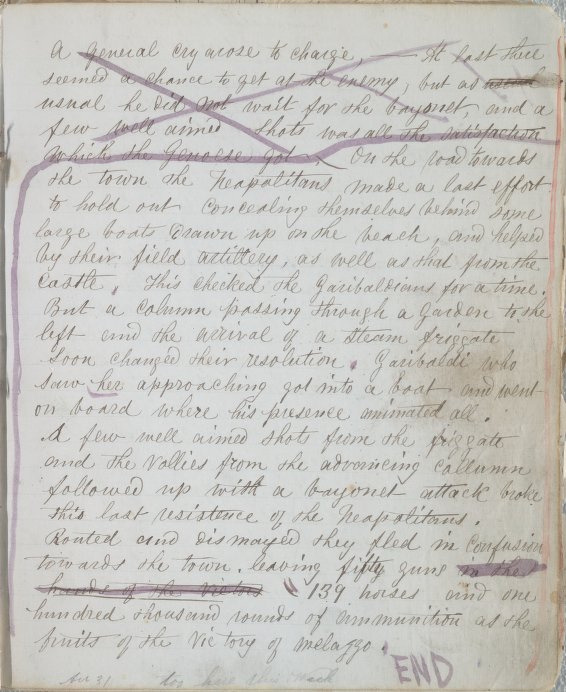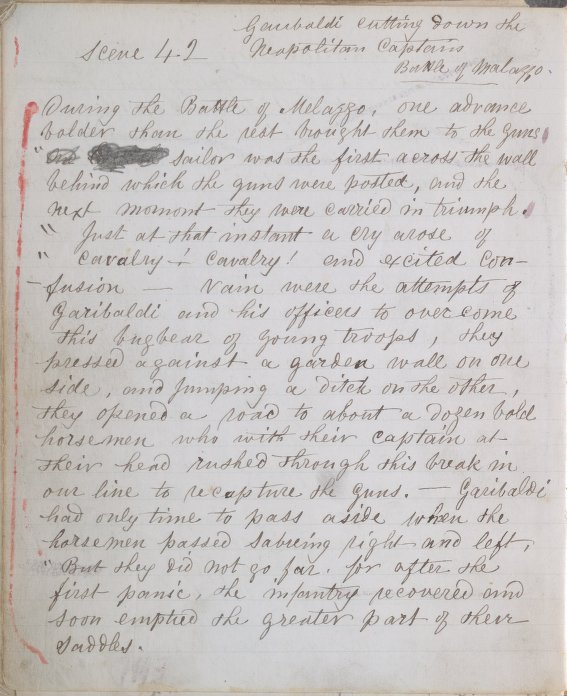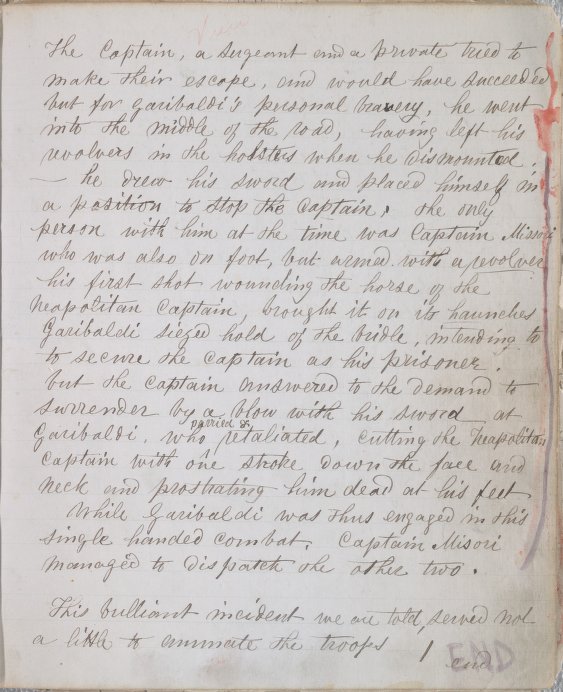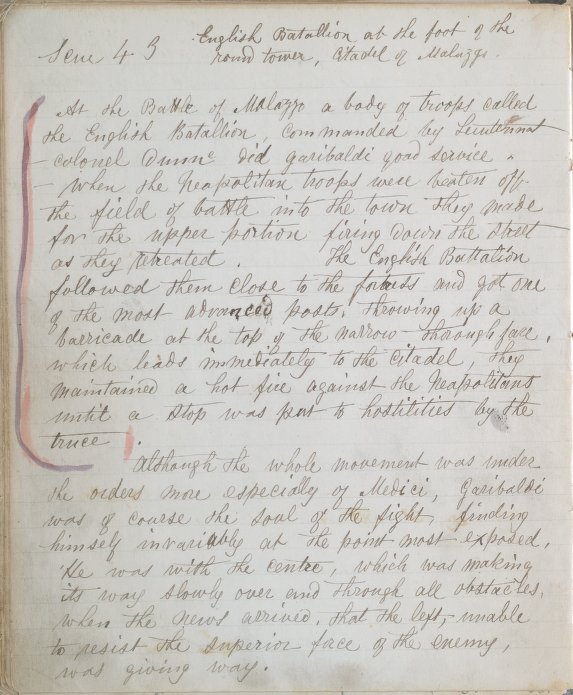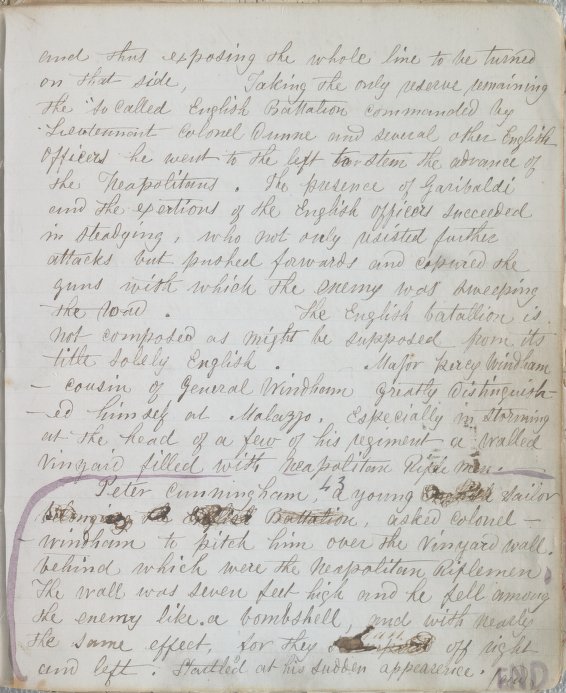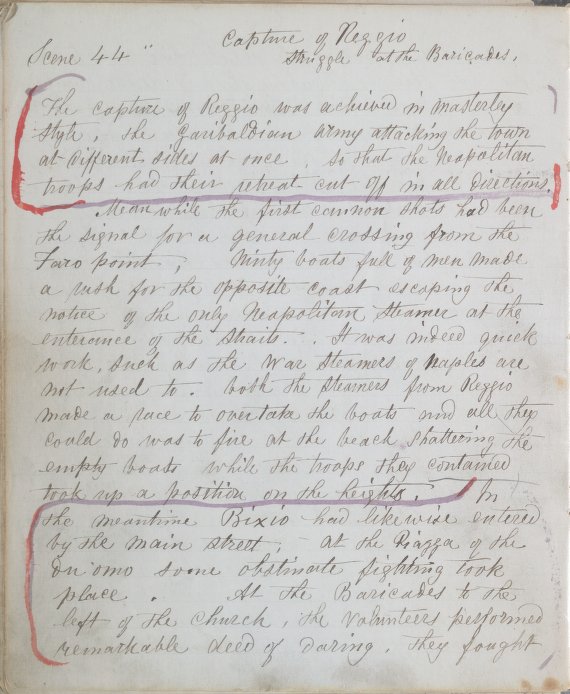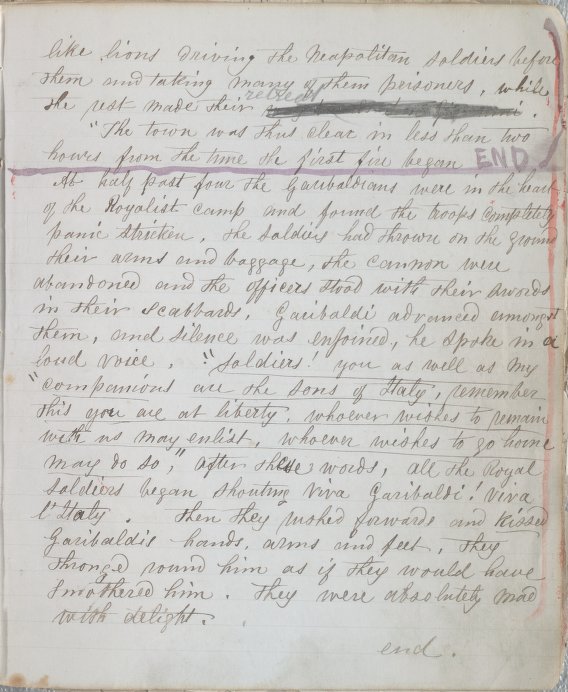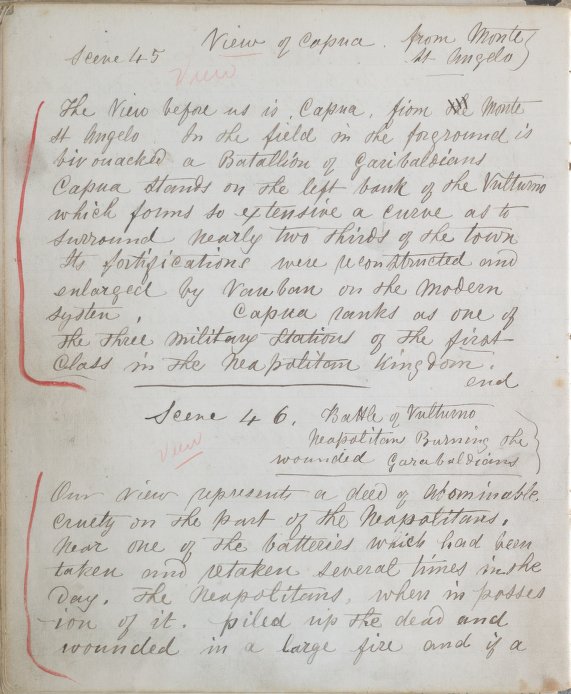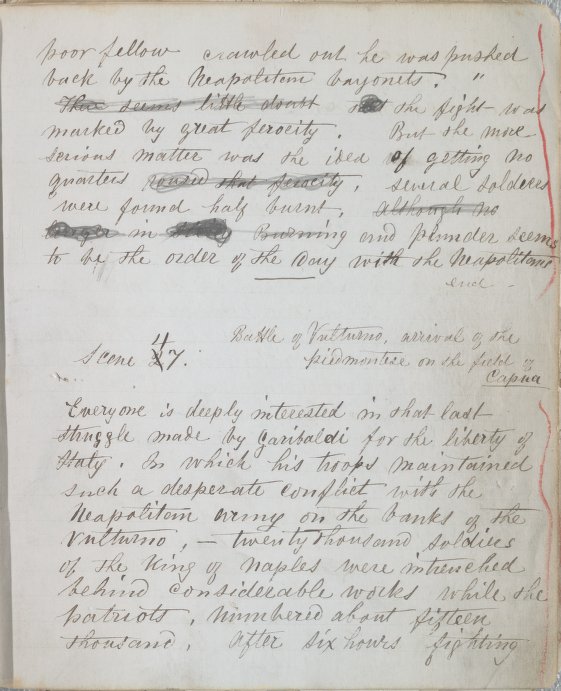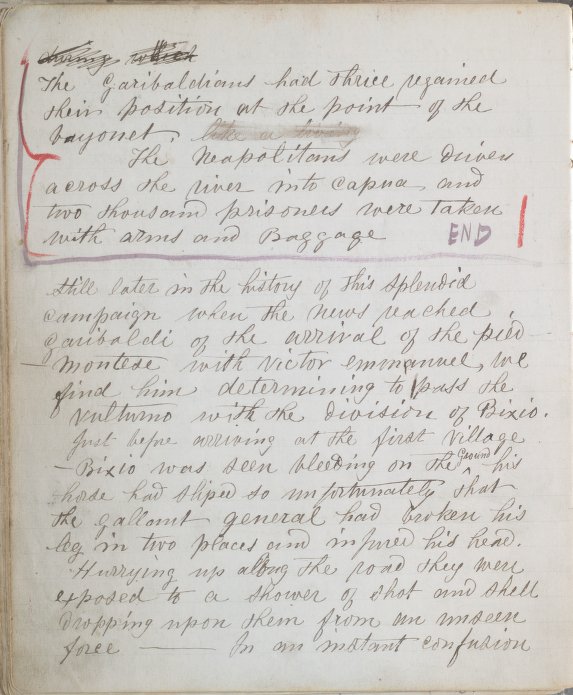Page 101
seemed a chance to get at the enemy, but as
usual he did not wait for the bayonet, and a
few well aimed shots was all the satisfaction
which the Genoese got.
the town the Neapolitans made a last effort
to hold out concealing themselves behind some
large boats drawn up on the beach, and helped
by their field artillery, as well as that from the
castle. This checked the Garibaldians for a time.
But a column passing through a garden to the
left and the arrival of a steam friggate
soon changed their resolution. Garibaldi who
saw her approaching got into a boat and went
on board where his presence animated all.
A few well aimed shots from the friggate
and the vollies from the advancing callumn
followed up with a bayonet attack broke
this last resistence of the Neapolitans.
Routed and dismayed they fled in confusion
towards the town, leaving fifty guns
hands of the victors
hundred thousand rounds of ammunition as the
fruits of the victory of Melazzo.

